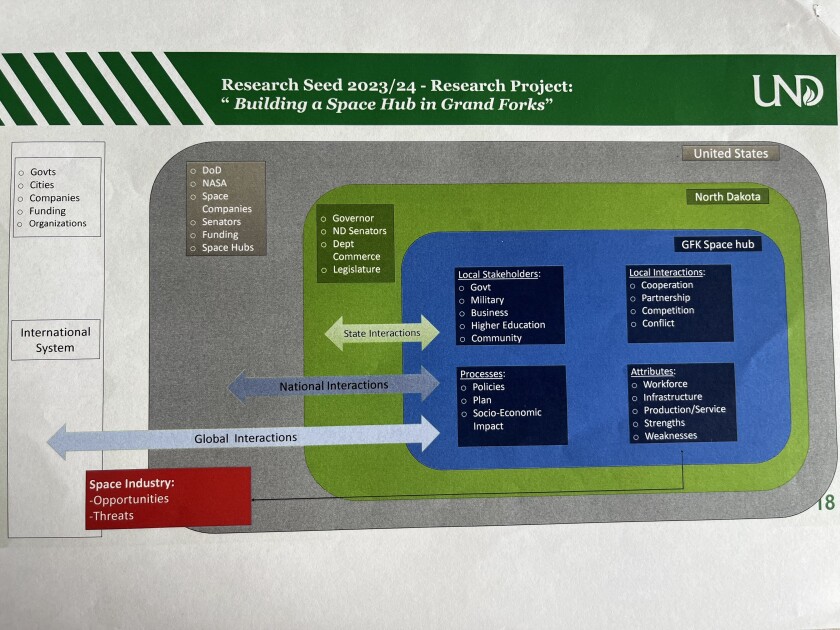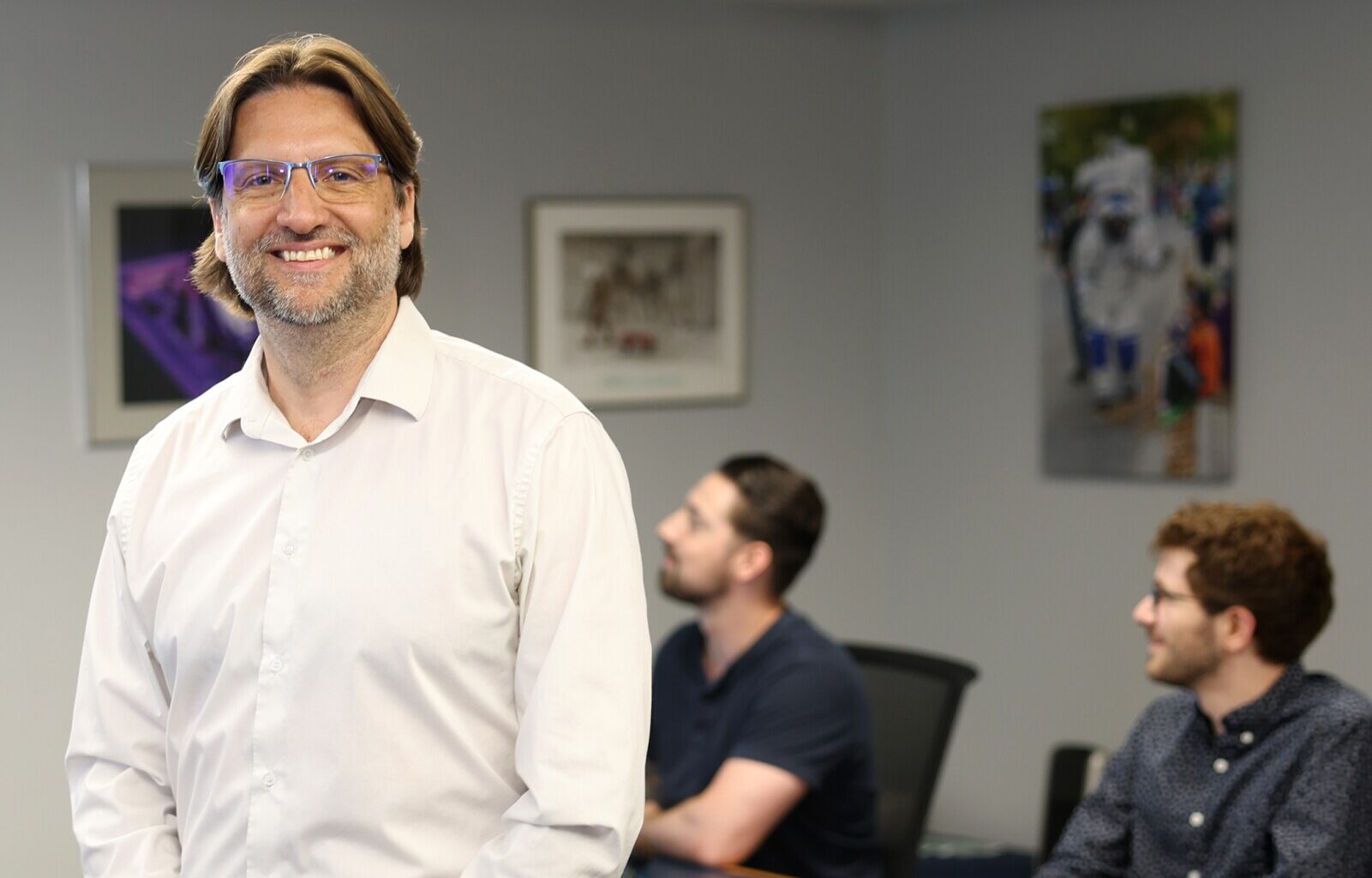GRAND FORKS – Even University of North Dakota space studies assistant professor Francisco Del Canto Viterale grapples with a single definition of a “space hub.”
As he sees it, a space hub could be defined as a place where universities, businesses, government agencies and more can interact. “Both cooperation and competition” are ways these entities can work together, he said, “with the purpose of fostering collaboration, technological development, business growth and the commercialization of space-related products and services.”
No matter how it’s explained, he believes building and developing a space hub in Grand Forks will attract businesses, investors and researchers.
“In a particular industry, this case is space, there is an interest to develop that industry, attracting people, attracting talent, developing business, attracting capital and money, with the goal to develop (and) build, an industry that, in some way, is going to develop a socioeconomic benefit for everyone,” he said.
Grand Forks could provide a physical location for the collaboration of various companies to work together in the space industry and develop new things while creating the opportunities and benefits needed to encourage UND graduates to stay.
According to his biography on the UND website, Viterale’s background includes specialization in the intersection between science, technology and innovation, and international relations. His background includes an emphasis on international space relations, space policy and space diplomacy.
He used social science research methods to conduct a study of Grand Forks and investigate how small- and medium-sized towns “are attempting to develop and enhance local space ecosystems.”
He believes that developing Grand Forks into a space hub can bring “significant socio-economic benefits to the local community.”
“One of the things I realize (in Grand Forks) is there are more job positions than people, which doesn’t usually happen. One of the products of this state is the lack of a work force,” Viterale said. “How can we bring people here because of the university, but then (have them) stay here?”
In the region, a space hub could create new jobs, bring new companies to Grand Forks and most importantly, it could create the potential for retaining graduates from UND. It all could support economic growth in the town.

Contributed / Francisco Del Canto Viterale
There is a prediction of growth within Grand Forks’ private sector both in the GrandSky business and aviation park and “startups and other unmanned aircraft technology companies in the area,” according to his research.
The area became reconfigured after the Cold War so Grand Forks Air Force Base now focuses on intelligence, surveillance and reconnaissance operations rather than being a bomber and missile base, as it was in the past.
The transition created opportunities. For instance, national aviation companies like Northrop Grumman now do business at GrandSky.
The Space Force also is nearby. The Cavalier Space Force Station is a little more than an hour’s drive from Grand Forks, bringing more opportunities.
The Space Development Agency was created in 2019 as part of the Space Force. In August 2023, the Grand Forks Herald reported that the expansion of Space Development Agency operations at Grand Forks Air Force Base will put North Dakota at the “center of U.S. military operations” in the coming years. The decision was “regarded as a significant milestone in the development of a more robust space hub in Grand Forks,” Viterale wrote in his research.
Comparative research would be the next step in Viterale’s process. He would like to find another city – similar in size to Grand Forks – to compare and perhaps learn more.
According to his research, other United States cities that are creating space hubs include Houston, Texas; Huntsville, Alabama; Los Angeles, California; Orlando, Florida; and Cape Canaveral, Florida.
“What I’m saying is, hey, this could be the root of something great,” Viterale said. “ … This can change the way.”
